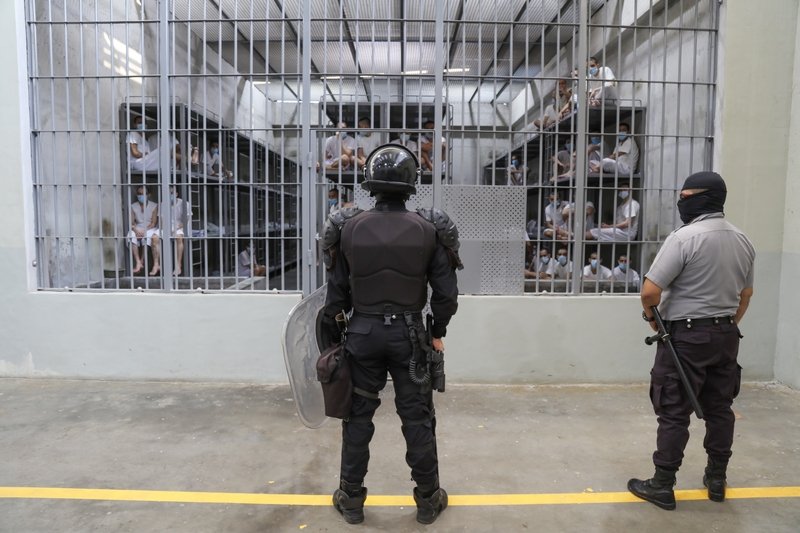Details of Mistaken Deportation Emerge
WASHINGTON – Kilmer Abrego Garcia, who was mistakenly deported from El Salvador’s notorious Mega Prison in March, has reported experiencing significant abuse, lack of sleep, poor nutrition, and psychological distress.
An amended complaint filed in the Maryland District Court reveals troubling insights into Abrego Garcia’s time at the Centro de Confinamiento del Terrorismo (CECOT).
This incident highlights a significant clash between the Trump administration’s strict deportation policies and the legal calls for fair immigration processes.
The allegations of mistreatment have raised alarms regarding the U.S. State Department’s financial support to El Salvador, which detains around 300 migrant men at CECOT. These allegations suggest potential violations of human rights law.
Harsh Treatment Reported
Upon his arrival at CECOT, prison officials ominously welcomed Abrego Garcia, telling him, “No one who enters here will leave.”
Shortly after, he was reportedly kicked and struck with a baton by security guards on his first day, leading to visible injuries, according to the complaint.
Abrego Garcia and 20 other detainees were made to kneel from 9 PM to 6 AM, facing physical assaults from guards. He was denied bathroom access during this period.
Conditions were dire: detainees were kept in overcrowded cells without mattresses or windows, under constant harsh lighting and with limited hygiene facilities.
Guards allegedly threatened to place Abrego Garcia in a cell with gang members, despite his lawyers asserting he is not affiliated with any gangs. His health reportedly declined significantly, resulting in a loss of 31 pounds.
Subsequent Transfers
On April 9, Abrego Garcia and a few others were transferred to another sector of CECOT, where they were photographed in better conditions, although his lawyer suspects these images were staged.
By April 10, he was moved to a different prison in Santa Ana, El Salvador. The U.S. Supreme Court had ruled that the Trump administration must facilitate Abrego Garcia’s return after he had been deported from his home country since 2019.
Despite this ruling, the Trump administration maintained that Abrego Garcia was still under the jurisdiction of El Salvador, complicating efforts to return him.
In his new location, he faced restricted communication with visitors and was often isolated whenever outsiders came to the facility. It wasn’t until April 17 that he was able to connect with family and lawyers, through the assistance of Senator Chris Van Hollen, who visited him in El Salvador.
Legal Challenges
Recently, Abrego Garcia was brought back to the U.S. and now faces federal charges in Tennessee related to human smuggling—charges his lawyers deny as merely attempts by the Trump administration to deflect criticism.
His case has been removed from the Tennessee Court, and he is currently being held due to fears of deportation by immigration officials.
The Justice Department indicated plans to deport Abrego Garcia to a third country eventually, though immediate action is not anticipated.
Abrego Garcia’s lawyers are now trying to determine if the Trump administration ignored court orders when failing to return him, despite acknowledging his deportation was incorrect.
The complaint outlines the severe trauma Abrego Garcia has experienced, calling for urgent judicial action and oversight. It suggests a broader crisis in the constitutional system, emphasizing potential overreach by enforcement agencies against federal courts, including the Supreme Court.
The legal team argues this situation undermines essential democratic principles by eroding checks and balances designed to protect individual rights against government excesses.







